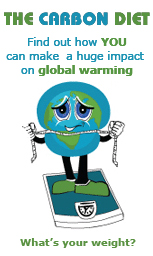Ask Ronit
 I Like Your Ponytail, A Story About Commitment
I Like Your Ponytail, A Story About Commitment
“I like your ponytail.” I said in a playful manner. “Ponytail?” he repeated in a thick French accent. There and then began the most extraordinary odyssey of my life.…
Avoid 90% of the Pesticides in Food, by Avoiding 12 Foods
Why should you care about pesticides in your food?For starters there may be as many as twenty pesticides on a single piece of fruit you eat.…
Dear Mrs. Black,It was January 1967 when this 11 year-old, frightened, little Israeli girl walked into your classroom for the first time. I had only arrived in the country two weeks before.…
With sex all around us, oozing out of our televisions, theaters, magazines, fashion, on the streets, one would think we are the most sexually informed, open and comfortable nation on the planet.”…
I’m sure by now you all have noticed the ongoing meltdown in the mortgage industry. The cause of this whole mess is a little bit complicated, rooted in both the structure of the mortgage industry, and human nature. I’ll try to explain both factors here in layman’s terms.…
Breaking old habits; Creating new Ones
We are mostly habitual beings. Webster defines habit as an acquired mode of behavior that has become nearly or completely involuntary.…
Navigation
Welcome To Our Planet
High Mercury Levels Are Found in Tuna Sushi
By NY Times
Tuna Sushi lovers are putting their health at risk, according to a New York Times sample study. The Times bought Tuna Sushi from several restaurants and stores around New York City and had it analyzed by a laboratory. The results yielded levels of mercury so hight that the Food and Drug Administration could take legal action to remove the fish from the market. High Mercury levels are particularly dangerous for children and pregnant women, but recent studies suggest they may also increase the risk for cardiovascular and neurological problems in healthy adults. read more »
Work Stress Can Prove to be Lethal
By Earth Times
If you are under 50 and experiencing great pressure from your work, you are two thirds more likely to suffer from heart disease than individuals who don't experience high pressure, according to a new study by researchers at University College London. The study found that stressed workers seem to have a weaker nervous system controlling their heart. This system regulates the tone and rhythm of the heart.
City Council Passes Bill for Recycling of Plastic Bags
By NY Times
It is estimated that 86 billion plastic bags are used by Americans each year. According to environmental organizations these bags end up entangled in the stomachs of whales and sea turtles or buried in landfills where they last for 1,000 years. New York City council has just enacted the most broad measure to minimize the environmental impact of these bags. read more »
Digital Tools Help Users Save Energy
By NY Times
How would people react if given the means to closely monitor and adjust their electricity? The Pacific Northwest National Laboratory of the Energy Department suggested that if consumers were given digital tools to set temperatures and price preferences, the peak loads on utility grids could save up to 15% a year. The results of the experiment even surprised the Energy Department. How did the consumers react when given the choice between comfort and cost? How much could this save over a long period of time? read more »
Great New Initiative to Drink Tap Water
I met with my girlfriend Fern this past weekend and learned about this important new initiative to get back to drinking tap water. Fern is the publicist for this venture and is clearly getting some wonderful traction. Please read the below press release and learn what a difference this small action can make to the environment.
“A Think Global, Drink Local” initiative created to brand tap water-- conceived and launched by agency veterans Mark DiMassimo and Eric Yaverbaum-- continues its meteoric rise in interest and education read more »
Judge Imposes Stricter Rules on Navy to Protect Marine Life.
By NY Times
What is more important national security or protecting marine life? That seems to be the conflict between the Navy and environmentalists over the naval use of sonar off the California coast. Whales and dolphins exhibit disoriented and frantic behaviors during the navy's sonar training exercises. Judge Florence-Marie Cooper ordered the Navy to implement strict new safeguard to protect marine mammals by limiting their exercises to 12 nautical miles from shore. The navy is considering an appeal. read more »
The Role of Reationships in Our Lives
Ronit,
When it comes to family, friends and acquaintances I find myself not always sure about the purpose of relationships. Should relations be goal oriented or does that interfere with being. Simply what is the purpose of relationships? I have my own thoughts but feel I can improve and want to hear yours to get grounded and release social distortion.
Jodan
Jodan read more »
Bonuses and Raises May be Far from Equal
As year end bonuses and raises make their rounds it may be worth taking a look at this study which showed bonuses had a much stronger effect than raises. A 1 percent raise boosts performance about 2 percent while the same amount as a bonus could improve performance by up to 19 percent. read more »
Burnout
Ronit,
Exactly how and why do people get burned out. I know people can get fed up with something over time but some jobs make people physically ill, or even mentally ill. About 10 years ago I got sick for a month after working at a job for over a year. It was a great job and I enjoyed it even though it was a lot of work. Since around then though, I've noticed that I just can't handle stress the way I used to. I am wondering if I really did get burned out. If so I never saw it coming. Is that possible?
Jerry
Dear Jerry, read more »
Children aren't reckless when parents aren't around
A recent study follow 10 - 12 year olds and found that, while they expose themselves to risk as many parents may fear, children take a very active role in managing their exposure to risk in regards to their own actions and by setting rules and limitations in regards to activities with other children.
The University of Warwick and the Research Unit for General Practice in Copenhagen conducted a study that observed children for 8 months in their school, after-school, and in their neighborhood when in the absence of parents. read more »

 My Hero
My Hero We Are Sexual Beings
We Are Sexual Beings The Banking Implosion
The Banking Implosion










